What is the Justice Audit?
The Justice Audit is an independent inspection of a country's justice system (from police, through prosecutors / lawyers, courts to probation and prison) examining institutional data by infrastructure, resources, case management and governance and disaggregating by age, gender and disability….
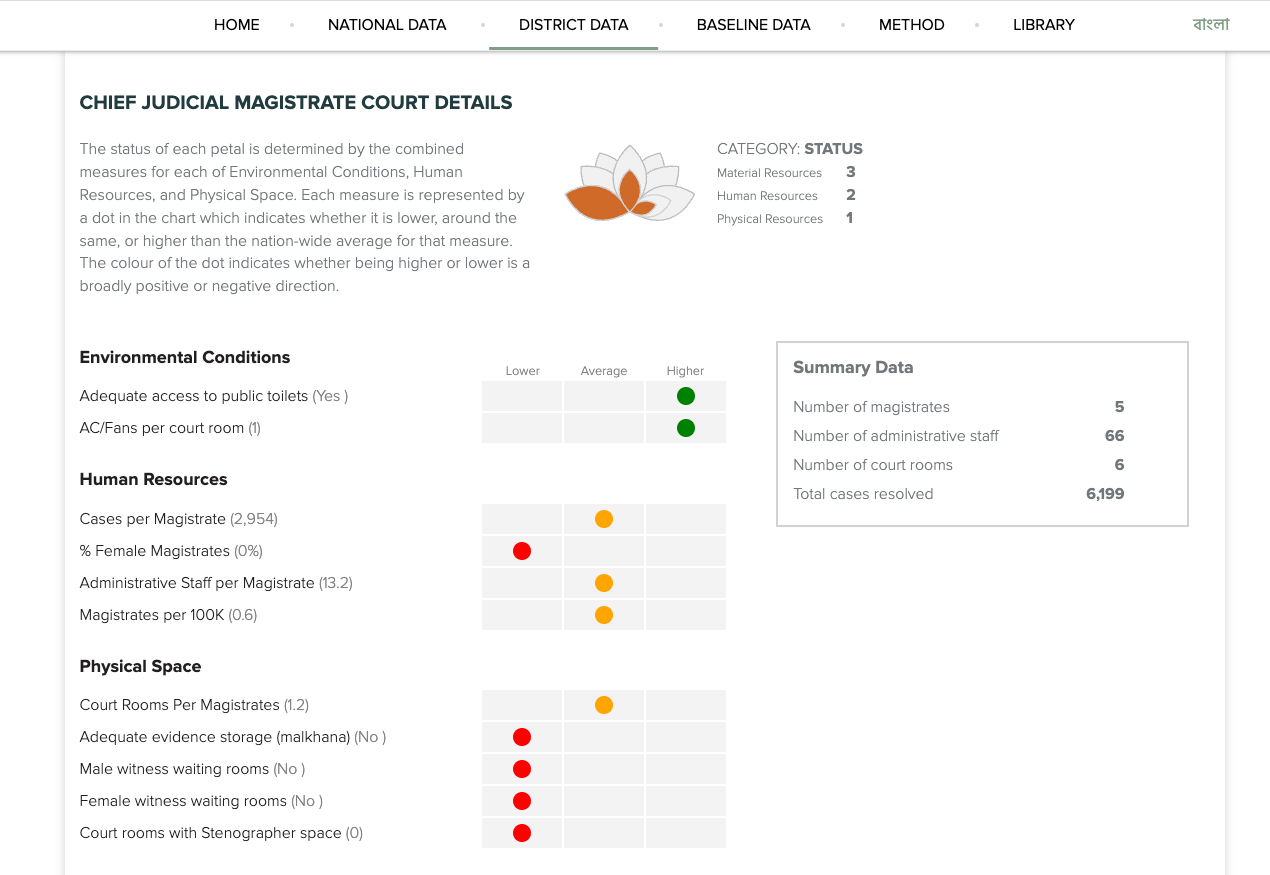
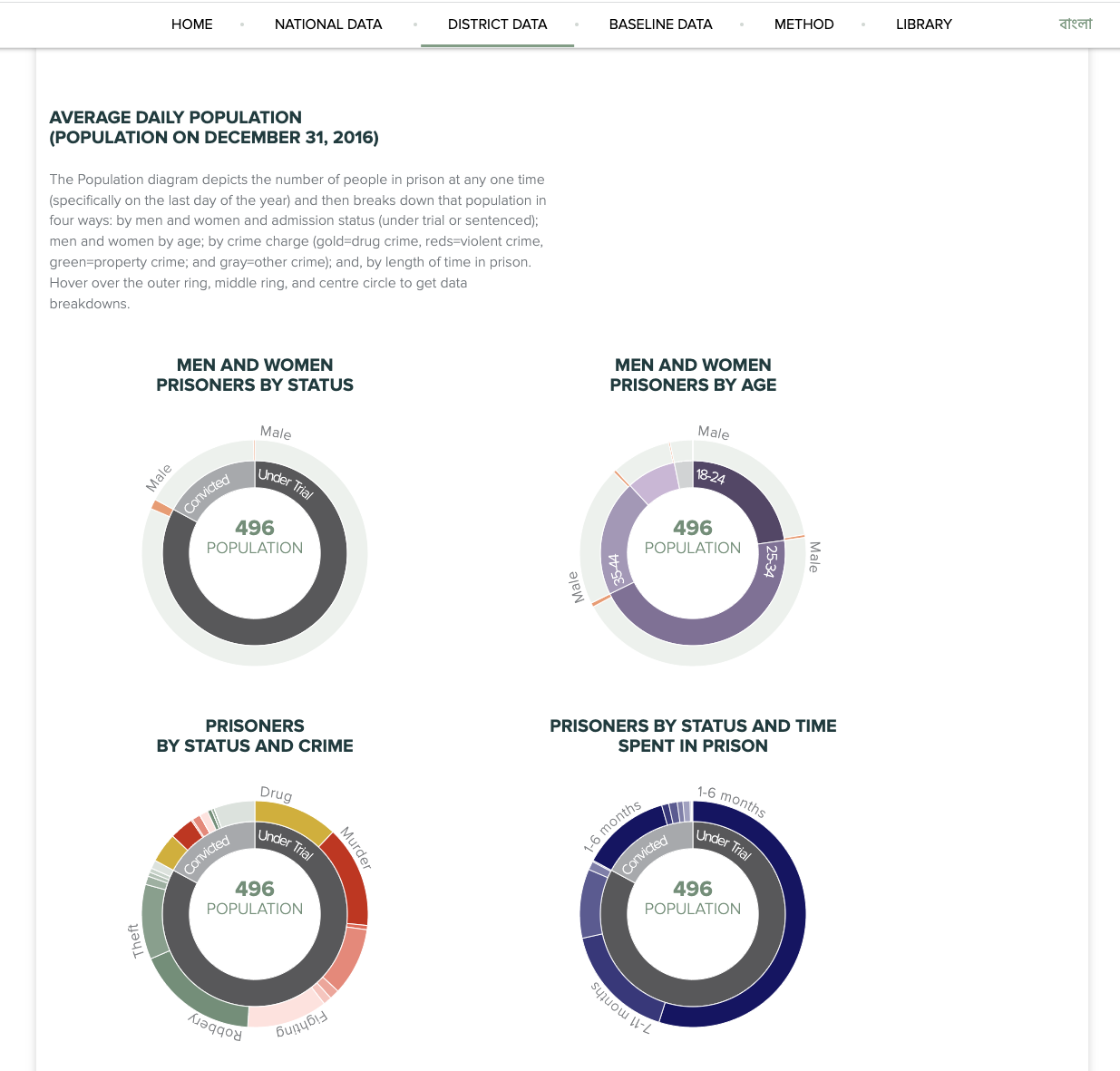
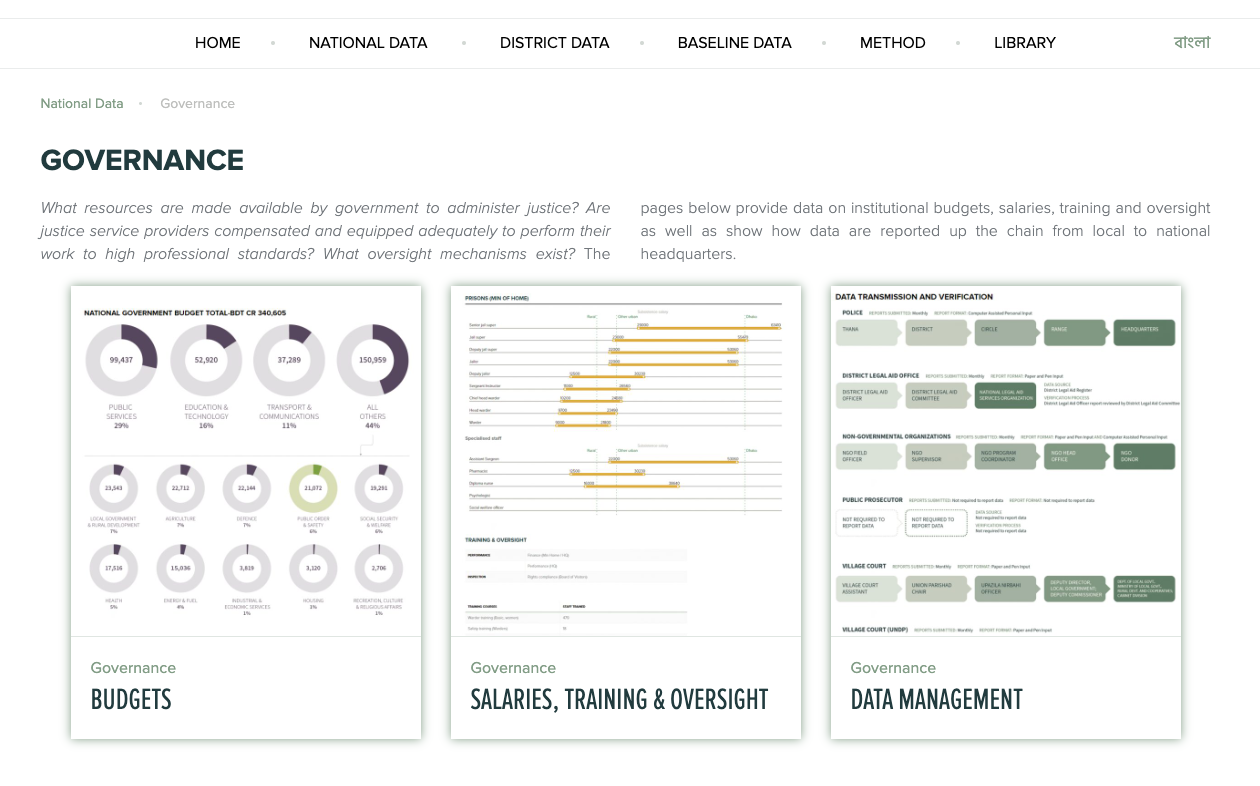
…And cross-checking institutional data through surveys and observation and further disaggregation as appropriate (e.g.: case type)…
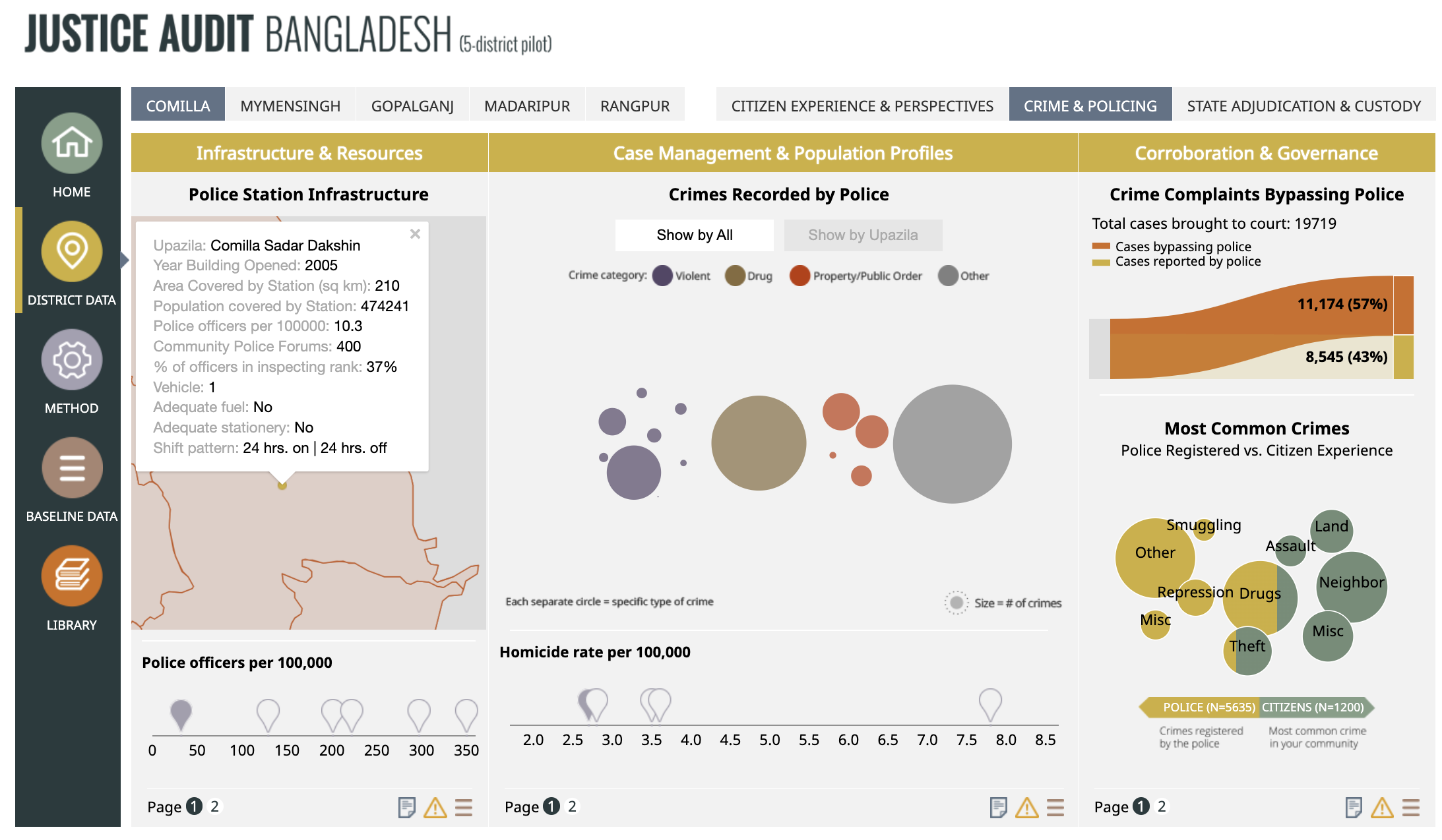
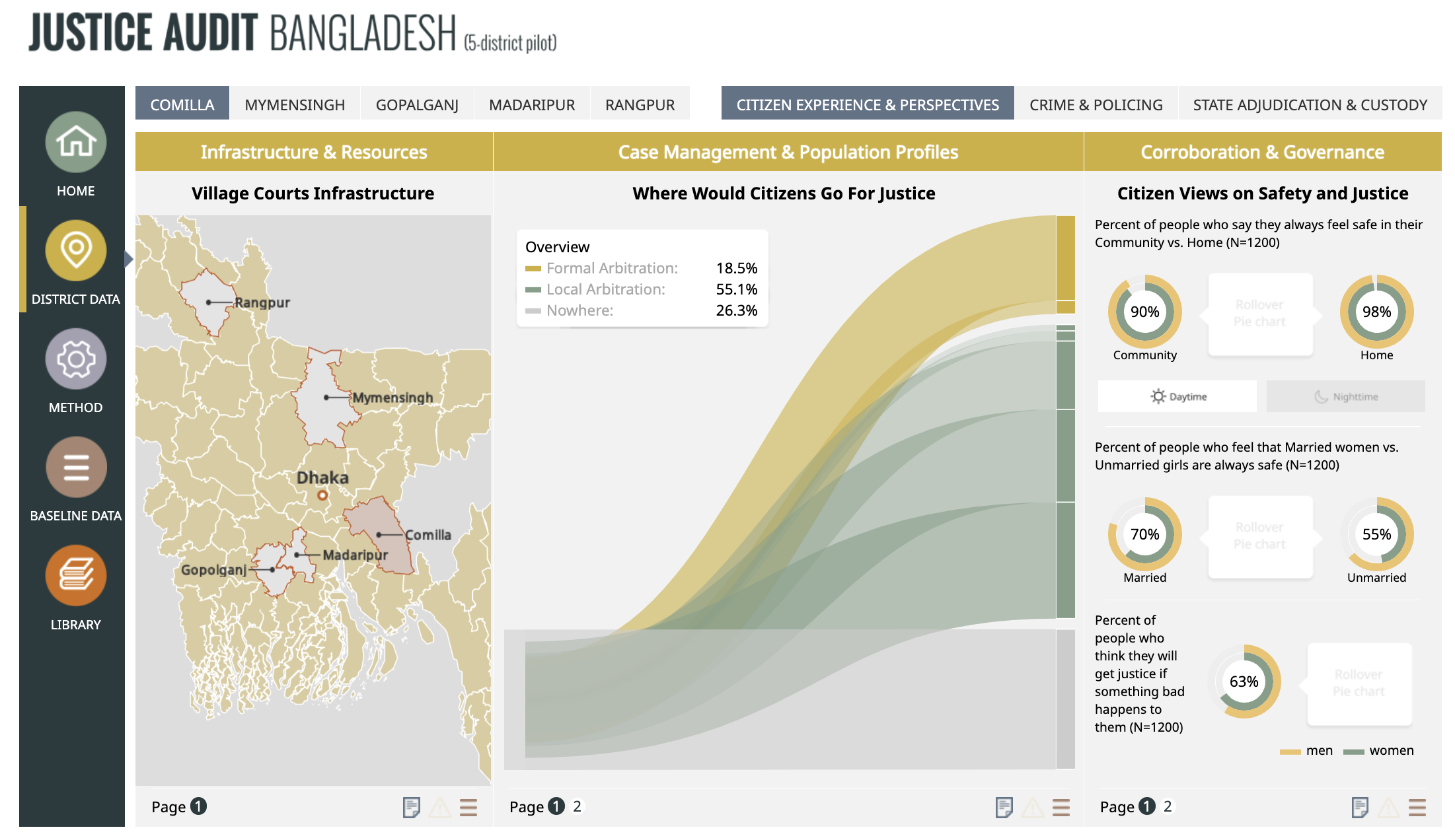
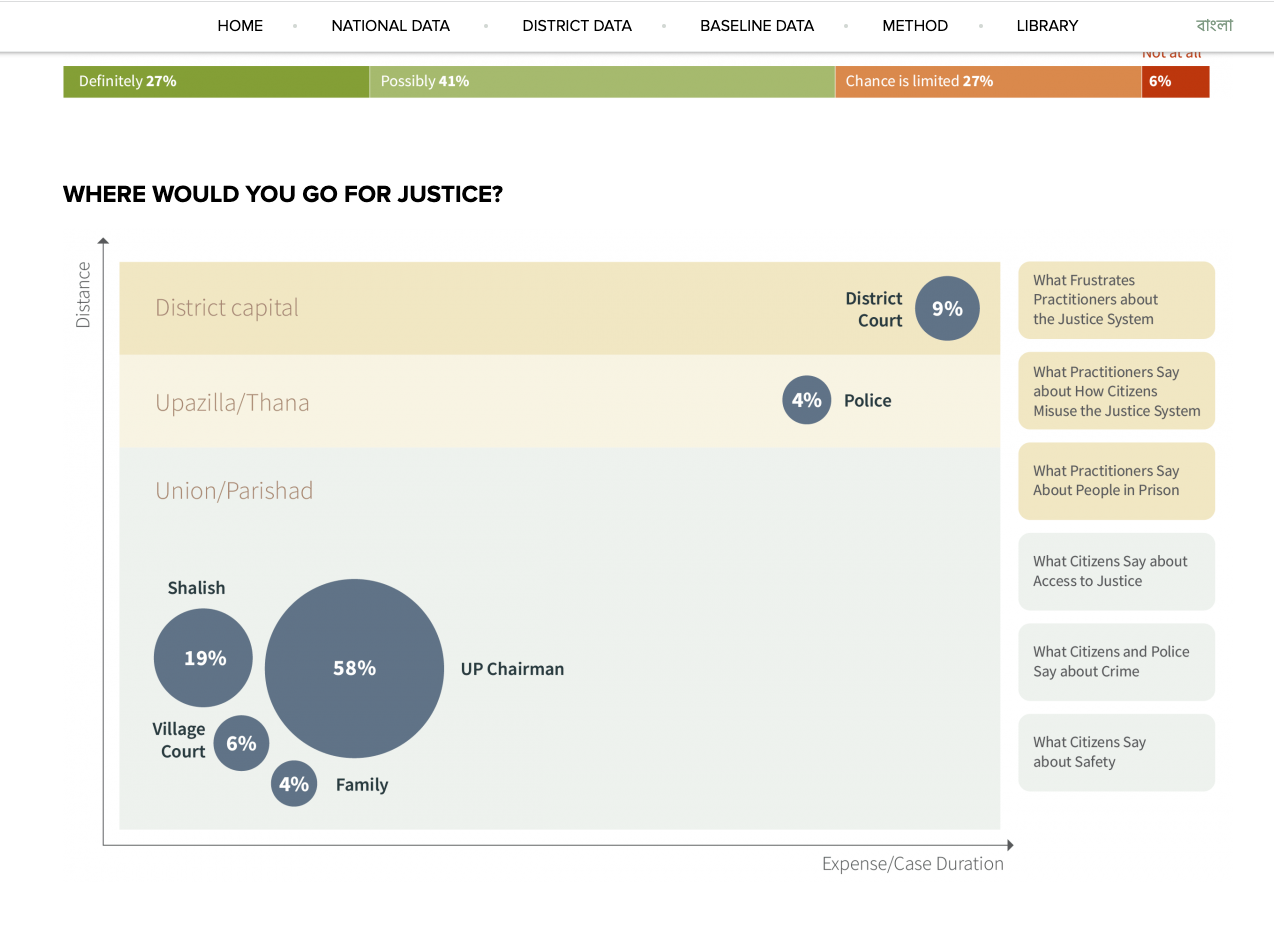
…Adopting language from healthcare: it is a diagnosis of the state of health of the entire system. As such it offers prognosis as well as possible treatments to address root causes.
It does not rank, nor score, a country. Instead it maximises the participation of senior justice actors to identify challenges they face and gaps in services they seek to provide - as exposed by the data the team collects.
The first Justice Audit provides a baseline against which progress can be measured and, from which, trends can be spotted.
Context in which it is needed
Governance by rule of law is based on a stable and trusted criminal justice system. However, without reliable and accessible data, it is difficult to evaluate or strengthen the real operations of the justice system. The Justice Audit is designed to help governments unlock the potential of their own data and mobilise it to strengthen rule of law frameworks and catalyse debate on justice reform.
It reveals crucial pressure points throughout the system which present opportunities for targeted intervention and strategic resource reallocation.
It leaves the host nation with greater analytical capacity by establishing a sustainable, and updateable, national policy tool.
“This is what I wanted because only when you have a complete, rather than partial, view do you understand what is going on . . . and I can check our progress against this baseline when we do another audit.”
- Minister of Law, Justice and Parliamentary Affairs, Bangladesh November 2018
Target Audience
Governments and Justice Institutions
…to encourage greater investment in their own data.
Law Schools and Civil Society Organisations
…to promote broader discussion.
Researchers
…to mine the rich baseline data to inform policy and reform.
General Public
…to enhance awareness and transparency.
Approach
The justice audit proceeds in a sequence of 7 time-bound stages with a deliverable at the end of each stage to build momentum and monitor progress.
The methodology is constantly evolving and is responsive to country context: each audit is bespoke because there is no ‘one size fits all’ when it comes to justice particularly.
All steps: 12-18 months
Why it works
It triangulates data (institutional, survey, observational data) to get beneath what 'seems' to be the situation, to what the situation is.
It's collaborative and transferable: engaging with justice institutions from the beginning in collecting and analysing their own data to improve system performance and enabling government to take over administration and update of the Audit following initial implementation.
It's objective and apolitical, generating a series of data-driven, justice process narratives weaving them together to describe how the whole of the country's criminal justice system functions. This gives the host government tools to inform their policies, rather than policy prescriptions.
LEADERSHIP | The Justice Audit is led and implemented by an international team of criminal justice experts.
The Justice Audit is led by
Johann Kriegler
A Founding Justice
Constitutional Court
South Africa
and advised by
Thomas F. Geraghty
Class of 1969 James B. Haddad
Professor of Law, Emeritus
Northwestern University
Pritzker School of Law
Chicago, IL, USA
Program implementation is carried out by
The Governance and Justice Group
The Governance and Justice Group (GJG) was founded in 2009 as an association of individual practitioners from many countries to help develop solutions to practical problems arising in the administration of criminal justice. The GJG works with governments, intergovernmental and non-governmental organisations as well as a range of international development agencies and universities.
Justice Mapping
Justice Mapping (JM) is a consulting network of subject area experts and information technology specialists who study criminal justice operations and surrounding conditions at the local level. JM produces data visualisation tools designed to help philanthropies, policymakers, and advocates reframe justice policy around places, coordinate operations in neighbourhoods, and reinvest in safer communities
For more information, visit
www.justicemapping.org
or contact Eric Cadora at
ecadora@justicemapping.org











